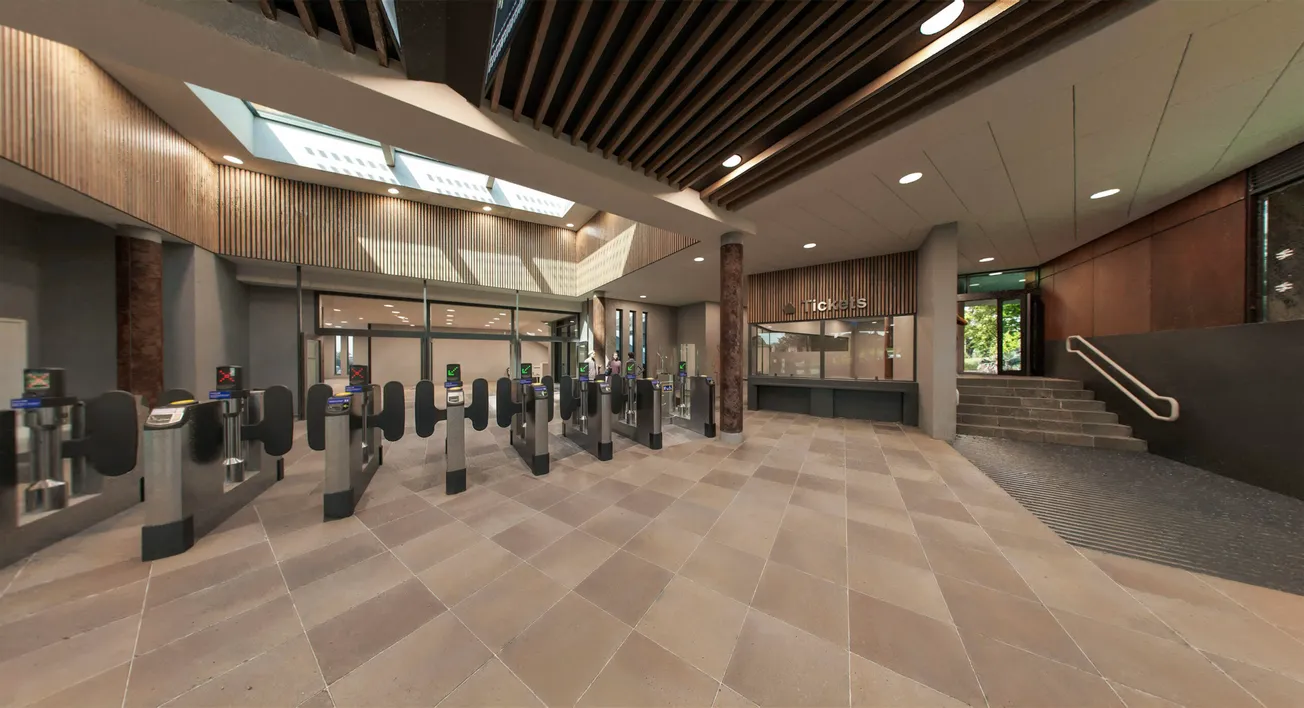The Baltic station is costing £100m. Is it value for money?

Liverpool's first new central railway station in decades is a major investment, but the price tag has raised eyebrows
Dear readers — If you live or work in Liverpool for long enough, you’ll find public transport is something people very much care about. In this respect, we’re no different than any other British city: metropolitan areas are only communities insofar as they are well connected.
However, a combination of historical and geographic factors make transport feel a particularly acute issue here. Consider the loss of the world-famous overhead railway, or the knowledge we once had an extensive tram system — and nearly did again. Meanwhile, scarcely a month goes by without Manchester’s Liverpool-born mayor announcing an extension of the Bee Network or a new underground system. These factors mean the issue of trains, buses and much-lamented trams is the level crossing where traditional Scouse pride and indignation intersect. And that’s before you get to the furore over the Everton “fan zone” at Sandhills, or the debate about “bendy buses.”
However, let’s give credit where it’s due. In April, Liverpool City Council (LCC) approved planning permission for a new railway station to serve the Baltic Triangle. This will be effectively a rebuild of Liverpool St James’ Station, which closed in 1917. Following on from the £80 million construction of Headbolt Lane, and future stations announced to serve Daresbury, Woodchurch and Carr Mill, this looks like part of a genuine attempt to build the city region into a cohesive metropolitan community.
But questions about Liverpool Baltic — as the proposed railway station has now been named — still remain. If it’s just a reopening of a previous station, why is it costing £100 million? Why is it being built there, instead of one servicing the Hill Dickinson? And what kind of delays, road closures, and other disruptions can we expect?
That’s all in today’s edition of Answers in The Post. But first, your regularly scheduled Post briefing.
Welcome to The Post. We’re Liverpool's quality newspaper, delivered entirely by email. Sign up to our mailing list and get two totally free editions of The Post every week: a Monday briefing, full of everything you need to know about that’s going on in the city; and an in-depth weekend piece.
No ads, no gimmicks: just click the button below and get our unique brand of local journalism straight to your inbox.
Your Post briefing
The much anticipated report into Birkenhead’s regeneration works has finally been made public. Earlier this month, Abi published her investigation into the mismanagement of regeneration by Wirral Council, contributing to a £12 million overspend for building works in Birkenhead. Now, after an internal investigation, it has been revealed that even before works began, concerns had been raised about a lack of capacity within the council to deliver the project. Additionally, the report highlighted a high turnover of staff in the council's regeneration department, as well as frustration among officers over the project's management and a lack of transparency. In response, council leader Paula Basnett has described the situation as "completely unacceptable.” "Residents must be confident that public money is being managed responsibly, transparently, and with full accountability," she told the BBC.
Liverpool bodybuilder Akinwale Arobieke has died aged 64. Merseyside Police confirmed that he was found unresponsive at his home in Toxteth on Tuesday evening, and was later declared dead in hospital. Somewhat of a bogeyman or even urban legend in the region, Arobieke was known for decades as “Purple Aki”, a name he and others considered racist. Tales of him approaching young men and measuring their muscles, asking them to squat his body weight were often told in schools across the region throughout the 1980s and 1990s. In 2003, he was jailed for six years for harassing 15 men, and on release in 2006 was issued with a Sexual Offences Prevention Order that banned him from touching men's muscles and going to gyms. Representing himself at Manchester Crown Court, Arobieke later successfully had the order overturned, and in 2022 won what he described as a "substantial" payout from Greater Manchester Police after bringing a civil case against them for malicious prosecution and malfeasance.
And a road in Wirral will be named after councillor Chris Blakeley, who died of cancer in 2020. Blakeley served as the Conservative councillor for Moreton West and Saughall Massie ward for nearly 20 years from 2000 to 2020, making him the area's longest-serving councillor. He also worked as the head of office for Esther McVey when she was the MP for Wirral West and held a number of senior roles in his time at Wirral Council. The new road, named Blakeley Way, will be part of a new housing development in Moreton where 66 new homes are set to be built.
In today’s Answers in The Post, Laurence digs into the proposed Baltic Station, to find out just when we can expect to see it up and running.
Liverpool deserves great journalism. You can help make it happen.
You're halfway there, the rest of the story is behind this paywall. Join the Post for full access to local news that matters, just £7/month.
SubscribeAlready have an account? Sign In

Latest
Northern Powerhouse Rail is back on track. We think...
The clockmaker of Wavertree
One of Merseyside’s oldest sports clubs still plays every Saturday
Does Liverpool have a ketamine problem?
The Baltic station is costing £100m. Is it value for money?
Liverpool's first new central railway station in decades is a major investment, but the price tag has raised eyebrows